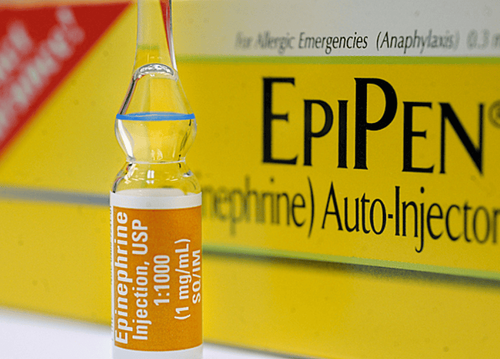This is an automatically translated article.
Zorcaine is a combination drug used for local anesthesia, commonly used in dental procedures. Here is some information to help you understand how Zorcaine works? Specify when?
1. Uses of Zorcaine
Zorcaine drug has the main ingredients Articaine and Epinephrine. Articaine is a local anesthetic, used in oral anesthesia. The anesthetic effect of this substance is due to the prevention of membrane depolarization that reduces nerve conduction. In a comparative study of Lidocaine and Articaine, it was found that Articaine was more effective than Lidocaine in numbing the molar region. Because of the local vasodilation, the drug is combined with vasoconstrictors such as epinephrine to reduce the risk of bleeding.
Zorcaine is often used before dental care to numb the area, reduce pain, and make procedures easier.
2. How to take Zorcaine?
Zorcaine is used as prescribed by the treating doctor. When taking the drug is injected into the gums.
The implementation of injections into the gums is performed by medical staff, the dose depends on each subject and has different indications.
Overdose: Taking the drug more often or starting with a high dose can cause an overdose reaction. Overdose manifestations cause respiratory failure, cardiovascular effects, if severe, can be fatal. You should get immediate medical attention at the first signs of an overdose. Tell your doctor right away if any abnormalities occur while taking this medicine.
3. Possible side effects when using Zorcaine
Although it may be rare, some people can experience very serious and sometimes fatal side effects when taking the drug. Tell your doctor or you need to get medical help right away if any of the following signs or symptoms are associated with a very serious side effect:
Signs of an allergic reaction, such as rash rash, urticaria, itching; swelling, red, blistering, peeling skin with or without fever; trouble breathing, wheezing, chest tightness, swollen throat, trouble swallowing or talking; Unusual hoarseness, swelling of mouth/face/lips/tongue. signs of methemoglobinemia such as blue or gray lips, fingernails, and skin; irregular heartbeat; convulsions appear; dizziness or fainting; very severe headache ; feeling sleepy, tired, or weak; Rapidly breath. This effect when taking the drug is rare but can be fatal. Convulsions; slow or shallow breathing; chest pain; jitter; worried; Tinnitus; dizziness or unconsciousness; feeling lightheaded, confused, or blurred vision; trembling; depression. In addition, the drug can also cause other less serious side effects:
Numbness, tingling in or around the mouth, if this condition persists or worsens, seek medical attention immediately to avoid injury. oral mucosa. Discomfort at the injection site. These are not all side effects that can occur with Zorcaine. If you have any questions about side effects, talk to your doctor for medical advice about side effects.
4. Notes when using Zorcaine
Do not use Zorcaine if:
Are allergic to Articaine or Epinephrine or any other ingredient of Zorcaine. Pregnant women and lactating women should use caution. Before taking this medicine you need to tell your doctor about your history of drug allergies or any other condition.
If you are breastfeeding, avoid breastfeeding for at least 4 hours after taking Zorcaine. It is best to discard the colostrum after taking the medicine and then breastfeed the baby.
This drug can interact with other drugs, so before taking it, tell your doctor about all medicines to avoid the risk of drug interactions.
Do not eat when your mouth is numb and loss of sensation, as this will cause you to bite your tongue.
A serious blood problem with medication called methemoglobinemia has happened with these medicines. The risk of this happening may be increased in people with glucose-6-phosphate dehydrogenase (G6PD) deficiency, heart or lung problems, and infants under 6 months of age. Closer monitoring is required when using the drug in high-risk subjects.
Use caution when giving the drug to people over 65 years of age because more side effects may occur.
Zorcaine is a drug used under the prescription of a doctor and needs to be closely monitored for unusual signs. During and after using the drug, if you see any unusual or serious signs, you should consult a doctor or immediately go to a medical facility for advice.
Please dial HOTLINE for more information or register for an appointment HERE. Download MyVinmec app to make appointments faster and to manage your bookings easily.













